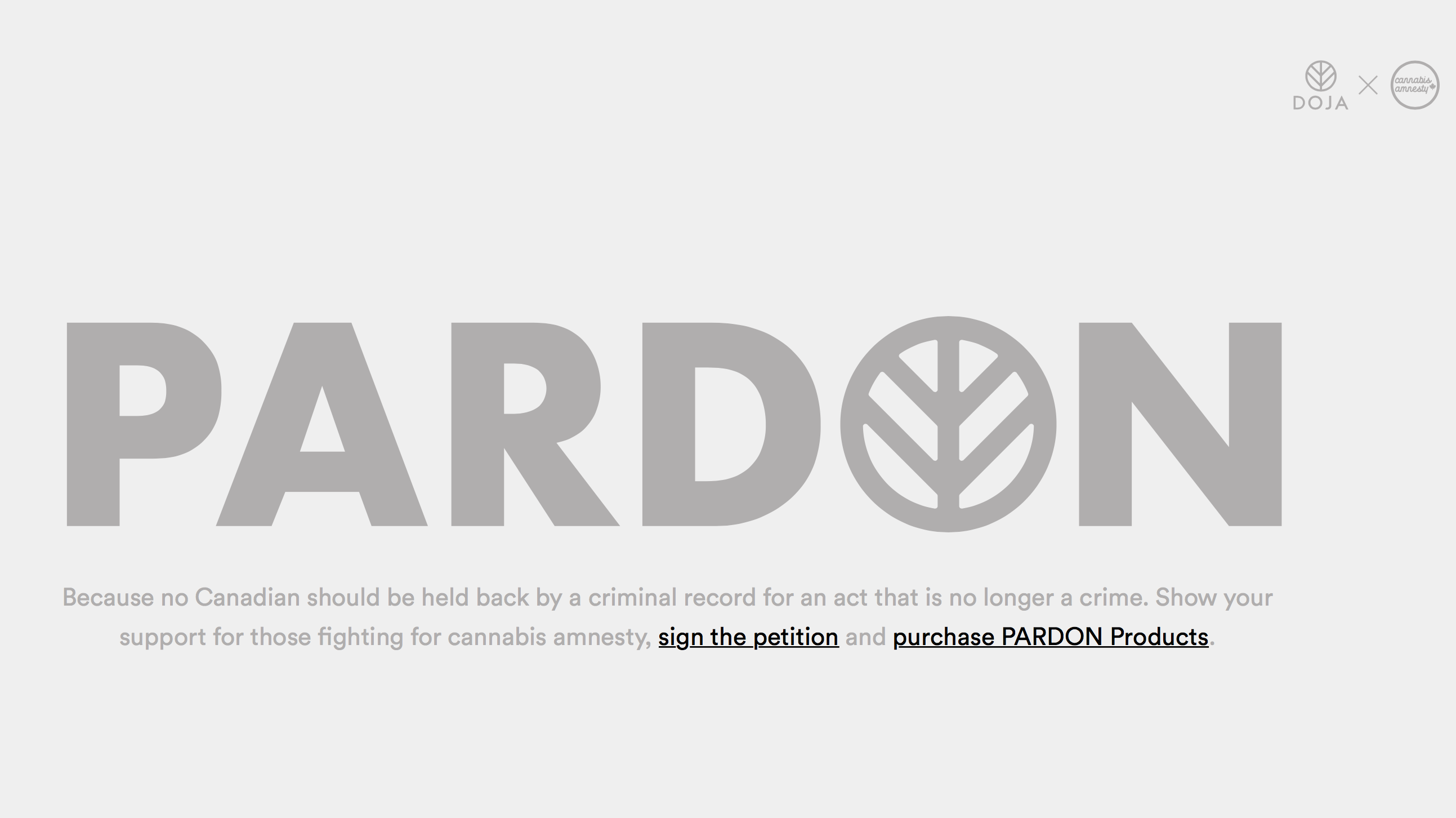News
Pardon me? Yes, we will
Published on October 19, 2018 by David Wylie

Well, that was quick.
The government announced on Oct. 17 — #legalizationday — that it would waive fees and waiting times for anyone wanting a pardon for past pot possession.
“It becomes a matter of basic fairness when older laws from a previous era are changed,” Canada’s public safety minister, Ralph Goodale, told reporters in Ottawa.
A month ago Kelowna-based Doja, which merged with Hiku and was bought by Canopy [TSX:WEED], had partnered with Cannabis Amnesty on a petition drive, called Pardon.
The Canadian government has now announced it’s planning to pardon Canadians with simple possession records.
Let’s not get too excited
Cannabis Amnesty’s reaction was… tepid.
“We look forward to reviewing any proposed cannabis amnesty legislation that will eventually be tabled,” Cannabis Amnesty writes on its website.
“Our main concern will be to ensure that any proposed regime meets the needs of the 500,000 Canadians who have their lives impacted by a criminal record for simple non-violent cannabis possession convictions.”
In the past, Canadians would have to wait about three years after conviction to apply for a pardon. It would also cost more than $600. When the Liberal government announced it was going to legalize marijuana, it sparked a petition drive from Cannabis Amnesty. Doja stepped in as a partner, creating branded clothing and renting a van to drive across the country.
Fire up … the Pardon Van
The Pardon Van was to drive across Canada to gather signatures and amp up some political pressure. It might have also introduced thousands of people to the Doja brand in the process.
Maybe that’s a win-win.
“As we head closer to cannabis legalization, the amazing work that Cannabis Amnesty is doing is ever-more important. The prohibition of this plant has compromised the health and happiness of many individuals–it’s time this comes to an end,” says DOJA founder Trent Kitsch.
A week before legalization, the petition had gathered about 4,000 signatures.
But the hard work isn’t over, Cannabis Amnesty says.
It should be: free, immediate, simple and permanent.
“Record suspensions or pardons are insufficient. They do not erase a convicted offence; they merely set it aside,” said Annamaria Enenajor, director of the Campaign for Cannabis Amnesty.
“Without expungement, individuals convicted of possession remain vulnerable to having their convictions reinstated. The government’s openness to consider cannabis amnesty gives us hope and our discussions to date have been fruitful, but the whole point of amnesty is to permanently eliminate, rather than merely suspend, the harms that stem from a previous cannabis conviction. Only expungement accomplishes this.”
Leave a comment on our Facebook page.
© Copyright 2018 Okanagan Z. | About the oz.
Report a Typo or Inaccuracy
We strive to avoid typos and inaccuracies. However, on occasion we make mistakes. We value your contributions and help in correcting them.